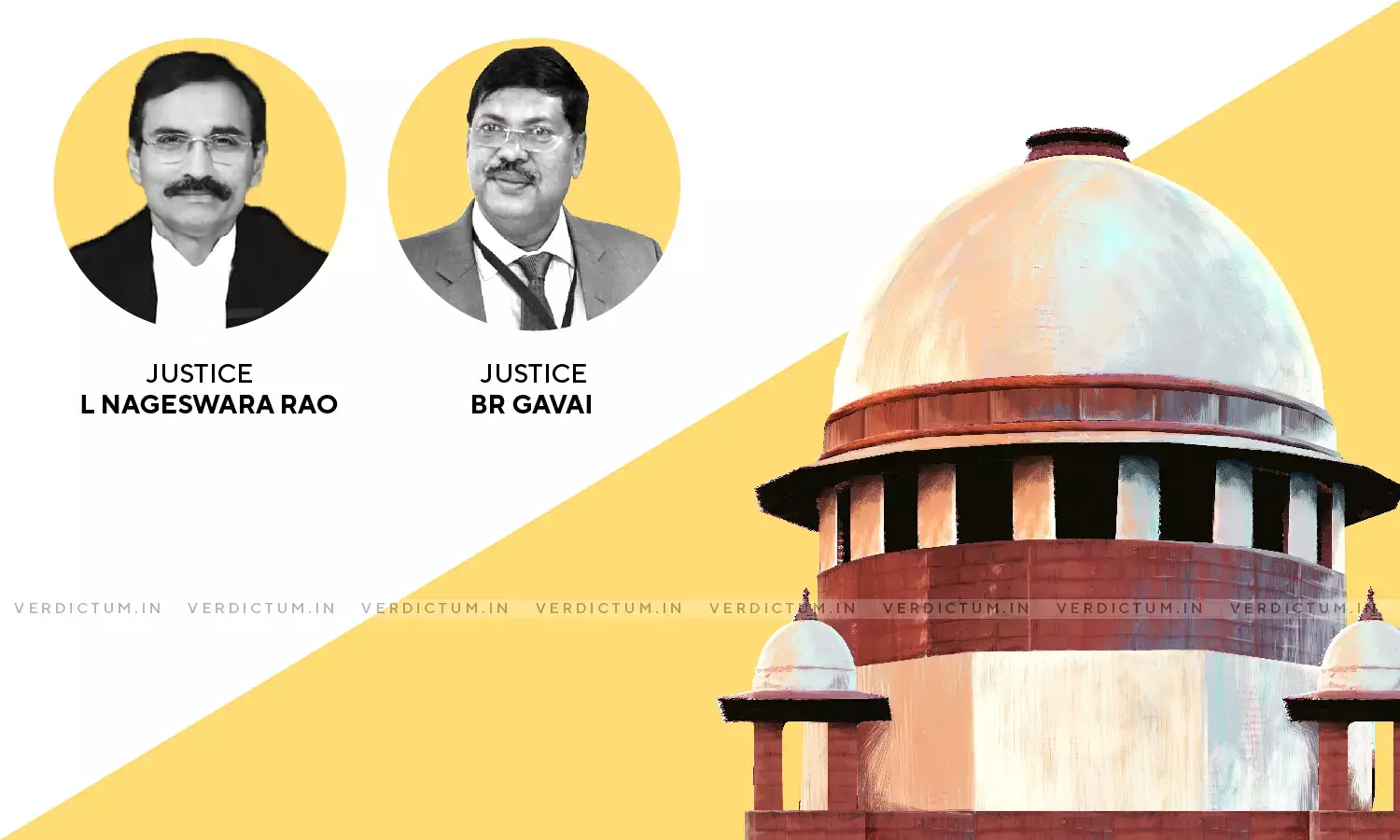Every Action Of State Is Required To Be Guided By Public Interest – SC Dismisses With Costs, Challenge Against Order Of APTEL

A two-judge Bench of the Supreme Court comprising Justice L Nageswara Rao and Justice BR Gavai has held that the distribution companies (DISCOMS), in this case, were instrumentalities of the State within Article 12. The Court made the following crucial observations:
"Every action of a State is required to be guided by the touchstone of nonarbitrariness, reasonableness and rationality. Every action of a State is equally required to be guided by public interest. Every holder of a public office is a trustee, whose highest duty is to the people of the country. The Public Authority is therefore required to exercise the powers only for the public good."
The Court noted that it had no hesitation in holding that DISCOMS could not be permitted to change the decision at their whims and fancies particularly when it is adversarial to the public interest and public good.
Mr. C.S. Vaidyanathan, Senior Advocate appeared on behalf of DISCOMS while Dr. Abhishek M Singhvi, Senior Advocate appeared for HNPCL.
The appeal was filed by distribution companies (DISCOMS) challenging the judgment of the APTEL that allowed the appeal filed by Hinduja National Power Corp. Ltd.
APTEL directed that Andhra Pradesh Electricity Regulatory Commission should dispose of the petition filed by HNPCL for determination of capital cost and action of DISCOMS for approval of amended and restated power purchase agreement on merits.
The erstwhile APSEB had entered into an MoU with HNPCL wherein APSEB transferred all licenses approvals clearance and permits for the establishment of power project at Visakhapatnam in the erstwhile State of Andhra Pradesh to generate and supply electricity to APSEB.
An initial PPA was executed between APSEB and HNPCL. Thereafter CERC granted a techno-economic clearance for the power project.
The parties agreed to amend the initial PPA and an amended and restated PPA was entered into. This amended PPA was not implemented till 2007. In 2007, HNPCL approached Govt. of AP to revive the power project mainly structuring it as a merchant plant and offering 25% of the power generated to the State and the balance 75% power to third parties. The state had offered to purchase 100% power generated from the plant which was agreed upon.
An MoU was entered into between APDISCOMS and HNPCL thereby deciding to continue the amended and restated PPA. A petition was filed for determination of capital cost for the project and for determination of the tariff for such generation and sale of electricity by HNPCL to APDISCOMS.
Then, AP State Reorganisation Act came into effect. HNPCL filed an addendum application that was disputed by APDISCOMS. The State Government vide order dated 1st June 2016, accorded approval for the purchase of 100% power from HNPCL.
APTEL allowed the appeal filed by HNPCL and directed State Commission to dispose of OP 21/2015 and OP 19/2016. Hence the appeal before the Apex Court.
The Court held that it was of the considered view that conduct of DISCOMS would disentitle them to withdraw the application.
The Court noted that the Court had held previously that though the Act of 2003 permits the generating company to supply electricity to a consumer directly, and that generator of electrical energy is not subject to the grant of license but while supplying electrical energy to a distributing agency, it would be subject to approval and directions of the Commission.
The Court noted that it was trite that while considering a grant of approval to the PPA, the State Commission would have to keep in mind the public interest.
The Court made the following observations:
"It will have to consider, as to whether the PPA, which is subject to approval, subserves the public interest. It will also be required to take into consideration, as to whether the terms agreed are fair and just while granting approval. While exercising power under Section 86(1)(b) of the Act of 2003, the Commission will have to regulate the price at which the electricity would be procured from the generating companies. Undoubtedly, while doing so, the Commission will be guided by the factors mentioned in Section 61 of the Act of 2003 and the Regulations concerning the same. Under Section 86(1)(f) of the Act of 2003, the Commission is also empowered to adjudicate upon the disputes between the licensees and generating companies, and to refer any such dispute for arbitration."
The Court noted that the State Commission totally erred in dismissing the petition filed by HNPCL.
The Court noted that though HNPCL had revived its project in 2007 as a Merchant Power Plaint and offered 25% of electricity, it was the State which offered to purchase 100% power from HNPCL.
The Court made the following crucial observations:
"The question, at this juncture, would be, whether to discard such a project is in the public interest or against it. At the cost of repetition, it may be reiterated, that the determination of the capital cost of the project and the rate of tariff at which the power has to be purchased would always be subject to regulatory control of the State Commission. What has been done by the APTEL is only directing the State Commission to determine the same."
The Court dismissed the appeal with costs quantified at Rs. 5,00,000/-.
Click here to read/download the Judgment

